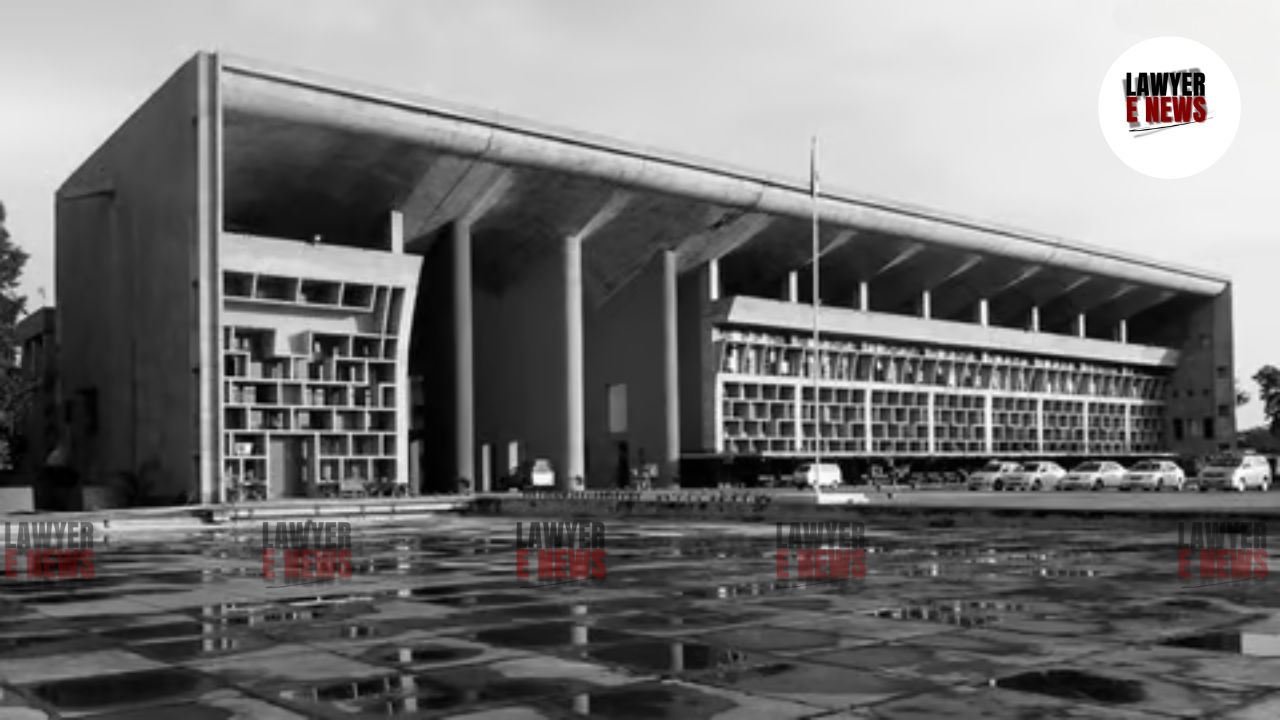-
by sayum
17 February 2026 8:32 AM



Fraud Cannot Be Pleaded Vaguely to Evade Statutory Bar—Jurisdiction Flows from Statute, Not from Allegations Framed for Forum-Shopping - Punjab and Haryana High Court delivered a significant judgment in State Bank of Patiala v. M/s Shri Balaji Contractor & Suppliers and Another [CR No. 2624 of 2016], holding that civil courts have no jurisdiction over matters governed by the Securitisation and Reconstruction of Financial Assets and Enforcement of Security Interest Act, 2002 (SARFAESI Act) where the borrower has access to the Debt Recovery Tribunal (DRT). The Court set aside the trial court’s refusal to reject the plaint and dismissed the suit filed by the plaintiff as not maintainable in law.
Justice Anil Kshetarpal, delivering the verdict, held: “When the plaintiff-respondent has the jurisdiction before the Debt Recovery Tribunal which has sufficient jurisdiction under Section 17 to consider and decide the matter, it will not be appropriate to entertain the civil suit.”
“Plaintiff Had Already Approached the DRT—Having Failed There, Civil Suit Is a Misconceived Attempt to Revive Barred Claims”
The plaintiff, M/s Shri Balaji Contractor & Suppliers, had approached the civil court claiming ₹21 lakh as the value of goods allegedly seized by the State Bank of Patiala under SARFAESI proceedings. The plaint was filed by the plaintiff as an indigent person, seeking recovery or adjustment of the said amount.
However, the High Court recorded that the plaintiff had already invoked Section 17 of the SARFAESI Act by approaching the Debt Recovery Tribunal, and those proceedings had been dismissed for non-prosecution. The Court found this sequence critical, observing:
“Having once approached the Tribunal, the plaintiff cannot turn around and plead lack of jurisdiction and attempt to invoke civil court’s jurisdiction for the same relief.”
“Merely Alleging Highhandedness Does Not Amount to Fraud—Civil Court Cannot Entertain Matters Barred Under Section 34 SARFAESI”
The plaintiff’s argument rested on the assertion that the bank had acted in a highhanded and arbitrary manner, allegedly seizing and selling goods beyond what was secured or due. On this basis, the plaintiff sought to evade the statutory bar under Section 34 of the SARFAESI Act by claiming the action was “fraudulent.”
The High Court, however, rejected this position entirely. Justice Kshetarpal drew a clear distinction between genuine allegations of fraud and vague assertions meant only to circumvent statutory limitations: “Where the action of the secured creditor is alleged to be fraudulent or the claim is so absurd and untenable… then the civil court has jurisdiction. But in the present case, the plaintiff has taken the plea of fraud only to confer jurisdiction on the civil court.”
The Court held that there was no material evidence of fraud and no specific averments that could justify invoking civil jurisdiction.
“Jurisdiction Cannot Be Created by Delay or Tactical Framing—SARFAESI Provides Complete Remedy Before DRT”
The trial court had refused to reject the plaint under Order 7 Rule 11 CPC, primarily on the ground that the application by the bank was filed at a belated stage.
Justice Kshetarpal found such reasoning fundamentally flawed and inconsistent with established legal principles: “The trial Court erred in dismissing the application as the question was of jurisdiction of the Civil Court… Such a plea can be raised at any stage.”
The High Court emphasized that the SARFAESI Act contains its own complete mechanism, and where that remedy is available, the jurisdiction of the civil court is clearly barred under Section 34.
“Relabelling of Allegations Cannot Cure Jurisdictional Defect—Trial Court's Order Is Legally Unsustainable”
The Court held that merely using civil terminology or seeking equitable relief cannot convert a matter into a civil dispute when the subject falls squarely within the domain of DRT proceedings.
Referring to precedents including Electrosteel Castings Ltd. v. UV Asset Reconstruction Co. Ltd. and Sree Anandhakumar Mills Ltd. v. Indian Overseas Bank, the Court reiterated: “Civil jurisdiction cannot be invoked merely by re-labelling facts—jurisdiction flows from statute, not sentiment.”
Civil Suit Rejected, Trial Court Order Set Aside
Setting aside the trial court’s order dated 04.04.2016, the High Court directed: “The plaint filed by the plaintiff-respondent shall stand rejected as being not maintainable. The trial court committed a serious jurisdictional error by refusing to reject the plaint.”
This ruling sends a clear judicial message that borrowers or account holders cannot bypass the exclusive jurisdiction of DRT by dressing their claims in civil attire, especially after they have already availed and exhausted statutory remedies under SARFAESI. The High Court underlined that civil courts cannot become a forum of second attempt merely because one fails before the proper forum.
In the sharpest articulation of its principle, the Court summed up: “Jurisdiction is not a matter of choice—it is a matter of legislative design.”
Date of Decision: 5 March 2025
